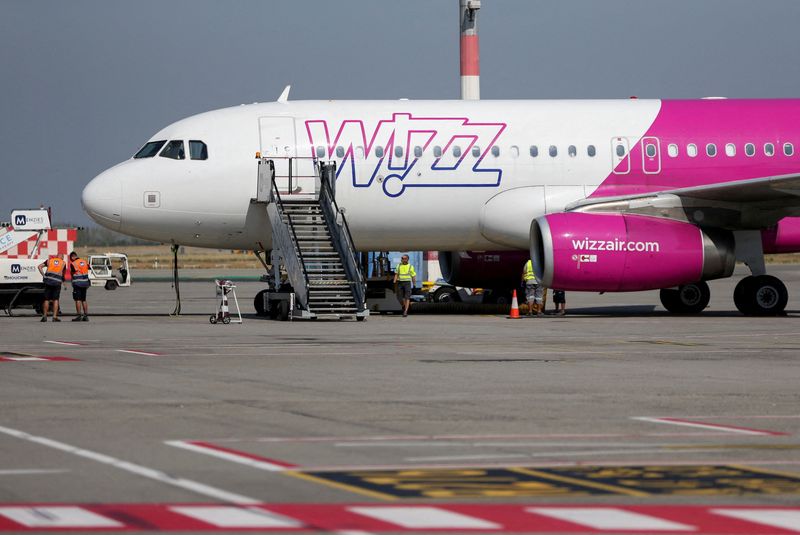By Aatrayee Chatterjee
(Reuters) -Wizz Air on Thursday posted a bigger than expected drop in first-half net profit, hit by ongoing issues with engine inspections that grounded its Airbus planes and the impact of conflict in the Middle East.
The company, which operates an all-Airbus fleet, has encountered challenges with Pratt & Whitney RTX engines, leading to the grounding of aircraft for inspections, limiting the carrier’s capacity.
Wizz Air expects continued GTF engine cost pressures in the second half of the year, offset by improved efficiency and a new compensation deal with Pratt & Whitney, CEO Jozsef Varadi said in a statement.
“Bookings since the period end show no softening of demand, and we are anticipating positive momentum into the second half in terms of both bookings and yield,” Varadi added.
Shares in the company were down 3.1% by 0804 GMT.
The European budget carrier reported net profit of 315.2 million euros ($339.16 million), against analyst expectations of 332 million euros for the six months to Sept. 30, according to a company compiled consensus.
Amid heightened geopolitical tensions in the Middle East, Wizz Air has suspended flights to and from Tel Aviv until Jan. 14 but plans to reallocate capacity to other markets, expecting minimal impact during the Christmas period, the CEO told Reuters.
JP Morgan analyst Harry J Gowers said: “Wizz is refocusing its network around core markets, focusing on density rather than new market expansion, which should bring yield benefits.”
Wizz Air’s results are in line with European rivals such as Air France-KLM and Ryanair, which have had profit margins squeezed by high costs, muted demand and intensifying competition.
The company posted a 33.2% drop in first-half operating profit and maintained its annual net income forecast in the 350 million to 450 million euro range, which was trimmed in August on the back of high one-off costs for wet leases and repairs.
($1 = 0.9294 euros)

